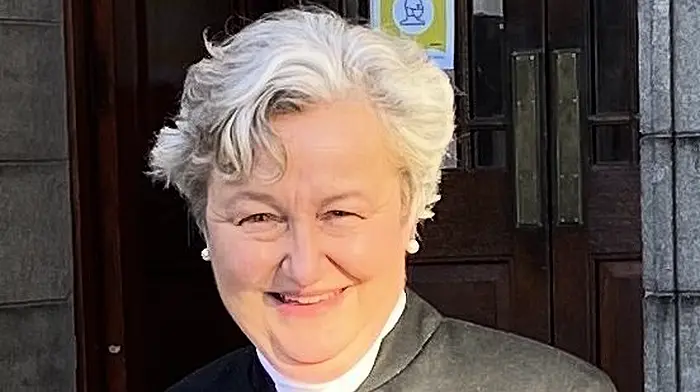THE AIB knew the game was up. When you’re in a hole, stop digging. Once the Taoiseach came out and made a comment – from Singapore, in fact – that introducing ‘cashless banks’ was a bad idea, they knew the writing was on the wall.
It is hard to understand how anyone on the board of the bank could have thought this was a good idea – on so many levels. Apart from the fact that money is a particularly sensitive subject for so many families right now, and cash is still king for so many people – you had the added elements of our distrust of banks since the Celtic Tiger years, the fact that the bank itself is still majority taxpayer-owned, and the belief that rural communities would be – once more – disproportionately affected, as larger urban centres would have more options.
One of the solutions put forward by the bank was risible, especially in rural areas.
They suggested that customers outside the cities could rely instead on their local post office for cash services.
Has anybody in AIB seen a local paper in the past five years? There is hardly a week goes by in any rural area without the local media reporting on yet another post office in danger of closing, or having shut up shop completely.
And take West Cork as a prime example. The announcement that Dunmanway would lose its cash services at AIB – having already lost its entire Bank of Ireland branch last year – happened in the very same week as the post office in Goleen closed its doors because nobody thought it financially viable to take on the business.
Taking the cash option out of the Castletownbere AIB would mean that customers’ closest AIB with cash would be in Bantry – a two-hour round-trip, provided there are no traffic delays.
And there was no guarantee that Castletownbere, Dunmanway or Kinsale wouldn’t lose their cash desks and ATM in years to come, either. And all of this in a region with very poor broadband options, as mentioned by many local business people in last week’s newspaper.
In fact, it emerged that one of the biggest fears was that nobody really believed that the AIB might stop there – many rural people had real concerns that this was just the start of a slippery slope to an entire network of cashless banks – forcing us all further into the digital sphere. And a digital sphere which is increasingly prone to bank fraud.
Banks still have not shown us they are willing to invest financially in making their systems foolproof to fraudsters, and so customers feel increasingly vulnerable to fraud. Many older people have reverted to the old ‘under the mattress’ options of storing cash.
This is despite the fact that the gardaí have continuously warned people to stop hoarding cash in their homes, because it can make them a target for travelling criminal gangs.
But the big AIB wigs in Dublin didn’t seem to notice that their great plan to increase revenues might make their own customers targets for often vicious criminals.
Many observers have noted the government’s real dilemma in appearing to do the populist thing of standing up to AIB management, while at the same time needing the bank to strengthen its profit base so that it can recoup a good return on its investment, if the bank is eventually sold.
It was depressing to learn that the number of bank closures among the big global banking players is seen as a positive metric in a bank’s performance these days – ie the more banks it closes, and the more customers it can force to go online – the better it is for shareholders.
AIB made a big deal of the number of customers who were failing to use its branch network – and the increase in online usage. But anyone who has stepped into an AIB bank in recent years in the hope of meeting an actual human, has certainly been incentivised not to try that again.
Where there is human activity, it is usually there to direct customers to in-house ATMs and away from the actual bank tellers – who are now a rapidly disappearing breed. Human bank staff are only available to those seeking to take out loans or mortgages, it seems, and nowadays all of that can be done online too.
For now, at least, the people have spoken. But they will need to keep their eyes and ears firmly fixed on AIB for the next few years too.









